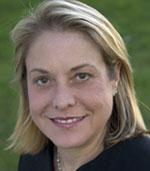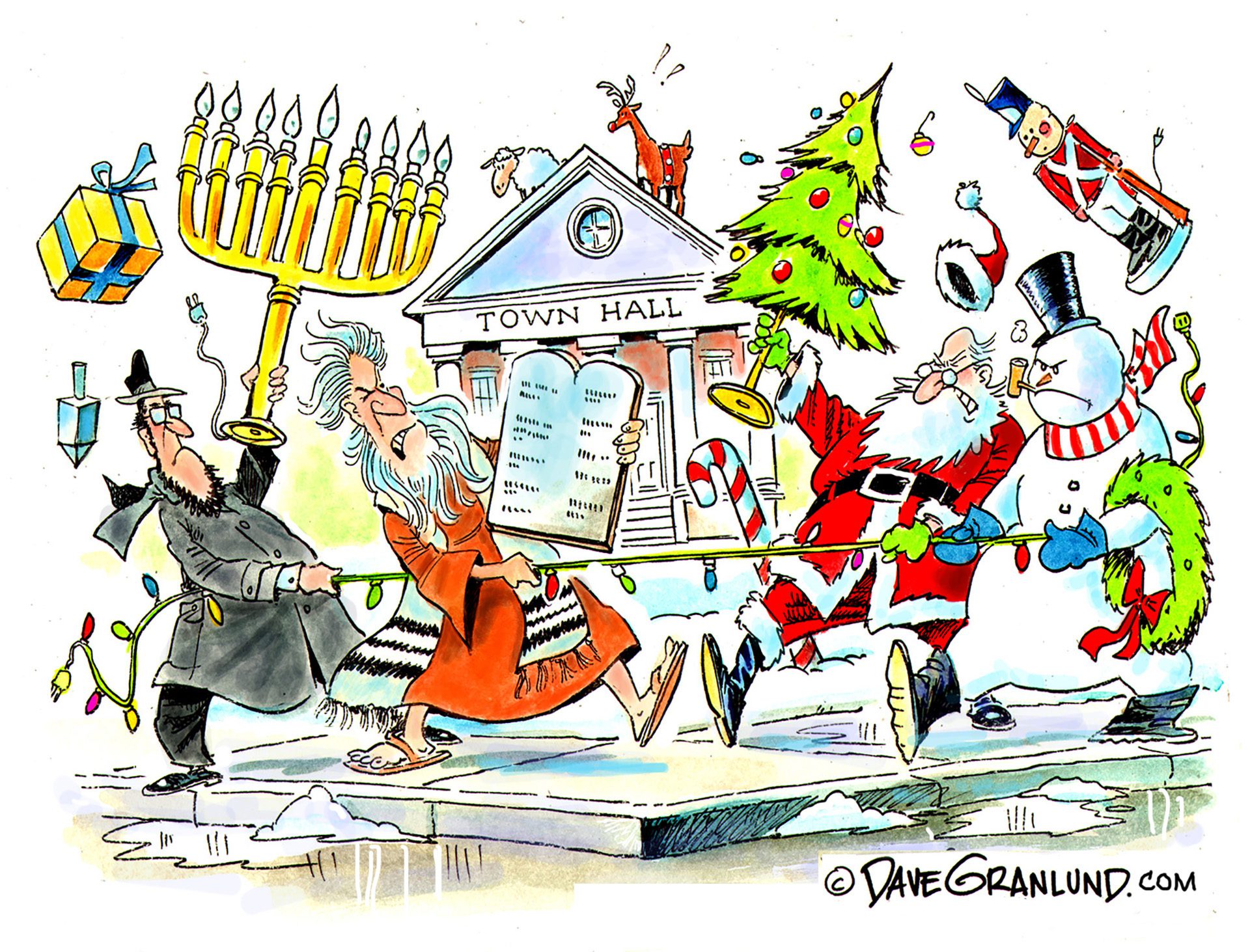BY SUSAN ESTRICH
 To Christians around the world, I wish you a very merry Christmas. To those who believe in Jesus as the son of God, few days are as sacred as the one that celebrates his birth. For those of us who are Jewish, Christmas happens to fall this year on the first day of Hanukkah, a minor holiday on the Jewish calendar made major by parents worried that their children might suffer from toy deprivation.
To Christians around the world, I wish you a very merry Christmas. To those who believe in Jesus as the son of God, few days are as sacred as the one that celebrates his birth. For those of us who are Jewish, Christmas happens to fall this year on the first day of Hanukkah, a minor holiday on the Jewish calendar made major by parents worried that their children might suffer from toy deprivation.
My parents suffered from no such worries.
I remember, when we were little – very, very little – leaving brownies or cookies and milk, my father’s favorite snacks, for Santa. But the millisecond I was old enough to even suspect that my father was the one enjoying his snack, Santa disappeared, and with it the stockings and the toys and the wonderful wonder of Christmas morning.
Did I miss it? Who wouldn’t? Was I jealous of kids who got to keep celebrating it? Who wouldn’t be?
But from the day Santa disappeared, I knew who I was. When they wouldn’t let me play Mary in the school play even though I had the longest hair [the usual requirement], I knew who I was. When I was told I wasn’t welcome at certain clubs, my family wasn’t welcome in certain neighborhoods, some of the colleges I was applying to were thought to have Jewish quotas, I knew who I was.
And when the late Nahum Sherf, my Hebrew school teacher, read us the poems from the children of Terezin [from memory, 50-plus years: “He doesn’t know the world at all who stays in his room and doesn’t go out/ He doesn’t know what I know best/ And what I want to sing about/ That the world is full of loveliness”], I knew why my mother lived in a semi-perpetual state of fear.
My identity was hardly limited to a tradition of suffering. My happiest teenage summer was spent at Camp B’nai B’rith in Starlight, PA, immersed in joyous Jewish tradition. I loved rewriting traditional Jewish services to address the questions of the ’60s and ’70s. I loved learning all the prayers in Hebrew and being able to sing as loud as I wanted without people telling us to hush, like they did at public school. I loved going to shul with my father and grandfather, as my father had done.
When liberals had radio shows, I once interviewed a rabbi about Jews celebrating Christmas. He was Orthodox, but not dogmatic. I knew his mother from Cambridge. He asked my listeners a few simple questions.
Do you want you children to join cults? No one did. The kids who join cults, he said, citing literature, are overwhelmingly kids who are desperate for a sense of identity, a sense of belonging to something larger than themselves.
I thought of all the schoolyard conversations I’d had with other mothers over the decades about the right and wrong foods and camps and tutors and everything – everything but the things that cost most.
If you don’t belong, the rabbi said, why would your children grow up feeling a part of anything? Or turn to Judaism when in need of comfort?
When my father died, we did everything exactly as he did for his father. They were buried as devout Jews are.
“Do you want your grandchildren to be Jewish?” he asked. The callers paused. The lights stopped flashing. “Don’t celebrate Christmas,” he told them. “That is the key.”
No one wanted to hear it. Christmas is fun.
The thing is, Christmas is a religious holiday that deserves our respect. But it does not mean we should abandon our own religious principles so that our children are equally gifted – literally. If this is the biggest sacrifice they make for their religion, they will be the luckiest Jews in history.
My mother and I, as adults, used to go to the movies and eat Chinese food on what we called our Jewish Christmases, our best times together, full of love, not prayer. Someday, my children will decide for themselves.
– Susan Estrich’s columns appear regularly in The Oklahoma Observer
Creators.com







